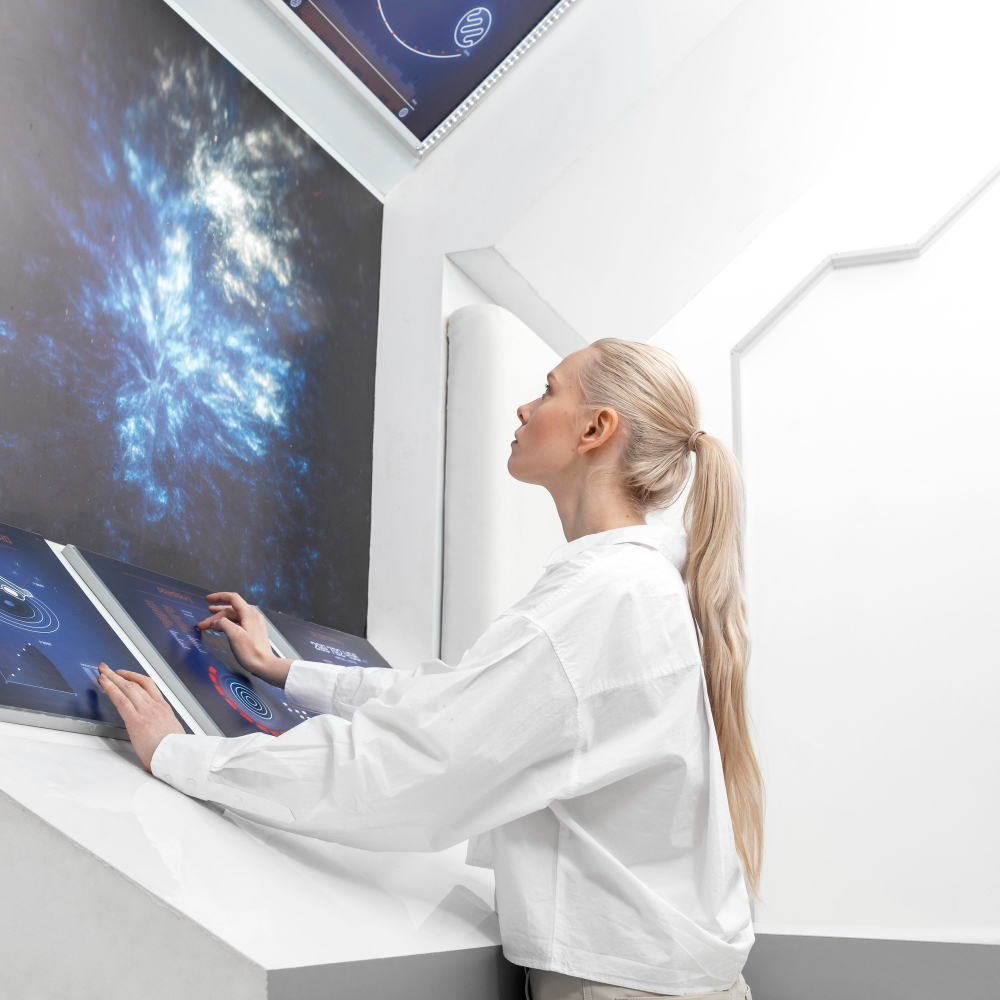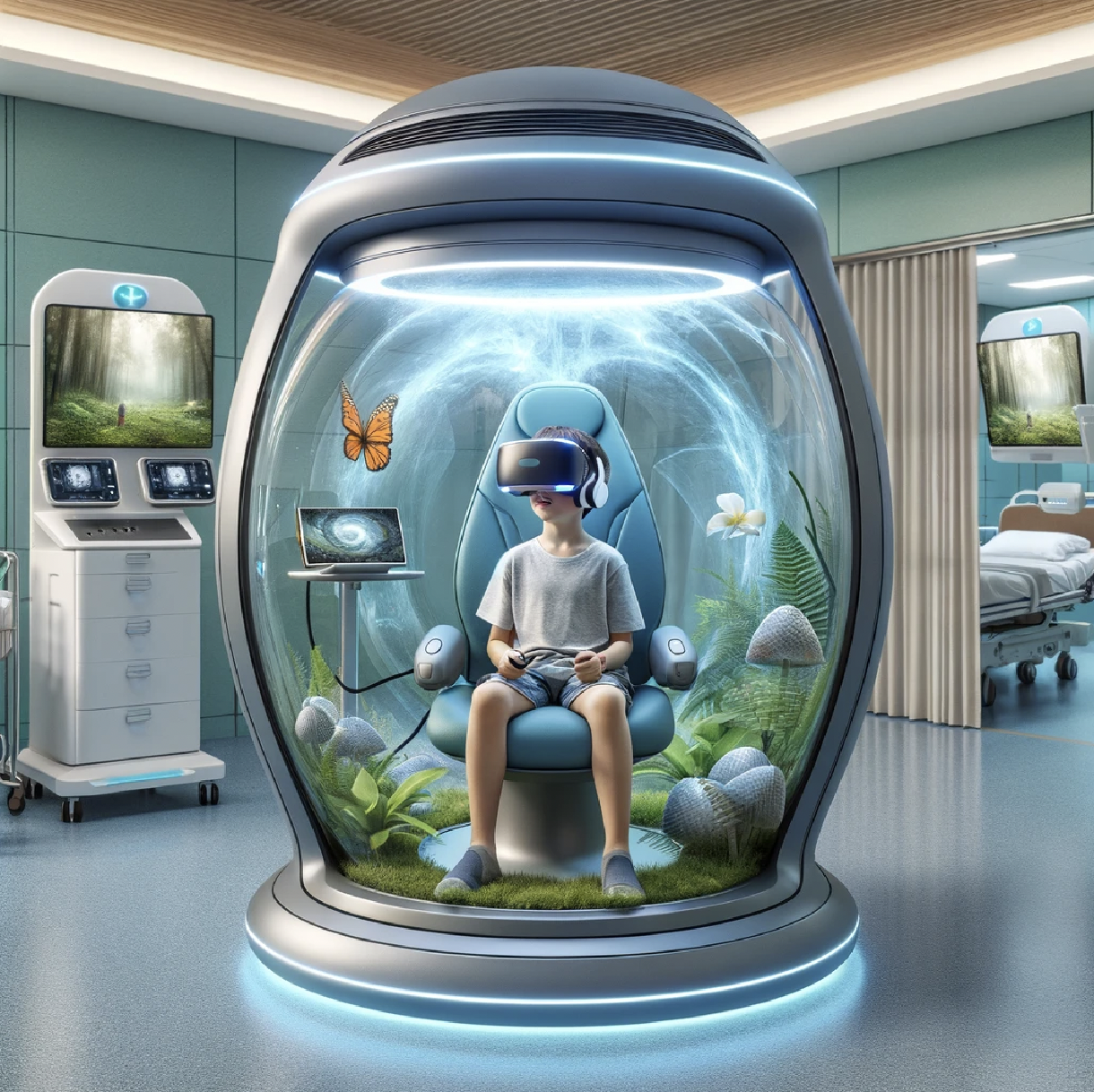Advantages of Using Immersive AI Technology for Hospice
Immersive AI in Hospice Care Hospice care is a crucial and compassionate service provided to individuals facing life-limiting illnesses. It focuses...
2 min read
 Nerdle
:
Dec 7, 2023 7:15:08 PM
Nerdle
:
Dec 7, 2023 7:15:08 PM

In recent years, technological advancements have opened new avenues for improving the lives of cancer patients. Augmented Reality (AR) and Virtual Reality (VR) are emerging as powerful tools in the healthcare sector, offering innovative solutions to enhance the overall well-being of individuals battling cancer.
AR and VR technologies provide immersive experiences, allowing cancer patients to better understand their diagnosis and treatment options. Through interactive simulations, patients can visualize complex medical procedures and comprehend the nuances of their treatment plans, empowering them to make informed decisions about their healthcare journey.
Cancer treatments often come with physical and emotional challenges. VR can serve as a form of distraction therapy, transporting patients to calming environments during treatments, thus reducing anxiety and pain perception. This not only enhances the patient experience but also contributes to a more positive mindset, crucial for the healing process.
For cancer survivors, the road to recovery involves physical rehabilitation. AR applications can guide patients through tailored exercises, ensuring proper form and technique. VR simulations can create engaging environments that motivate individuals during rehabilitation sessions, making the process more enjoyable and effective.
Managing stress and emotional well-being is vital for cancer patients. VR applications offer guided meditation and relaxation experiences, providing a virtual escape from the challenges of their treatment. These interventions contribute to stress reduction, fostering a holistic approach to cancer care.
AR technologies can facilitate real-time communication between patients, caregivers, and healthcare providers. This connectivity ensures a strong support system for patients, allowing them to share their experiences, concerns, and progress. Such connections can play a crucial role in mental and emotional support throughout the cancer journey.
AR and VR platforms are valuable tools for training healthcare professionals, enabling them to simulate and practice intricate procedures in a risk-free virtual environment. This enhances the expertise of medical teams, ultimately benefiting cancer patients through improved treatment precision and efficiency.
The integration of AR and VR in cancer research accelerates data analysis and visualization. These technologies aid researchers in comprehending complex biological processes, facilitating the discovery of novel treatments and therapeutic approaches.
In conclusion, augmented and virtual reality are revolutionizing cancer care by offering personalized, immersive, and supportive experiences for patients. As these technologies continue to evolve, their positive impact on both the physical and emotional aspects of cancer treatment is likely to grow, providing new avenues for improved patient outcomes and quality of life.
About VRenity
VRenity is at the forefront of transformative therapeutic technology, crafting immersive experiences that envelop the senses and foster tranquility. Our innovative solutions are set to revolutionize the way individuals engage with mental wellness, utilizing the latest in audio and visual technology across popular VR platforms. Prepare for a new dimension in wellness, where serene soundscapes meet dreamlike visuals, all within the reach of your VR headset.
Image Source: Image by Freepik

Immersive AI in Hospice Care Hospice care is a crucial and compassionate service provided to individuals facing life-limiting illnesses. It focuses...

Introduction Aphantasia is a newly recognized condition characterized by an inability to voluntarily conjure mental images (Zeman, Dewar, & Della...

Introduction: The world of pediatric oncology is one that requires not only advanced medicaltreatments but also compassionate care that addresses the...